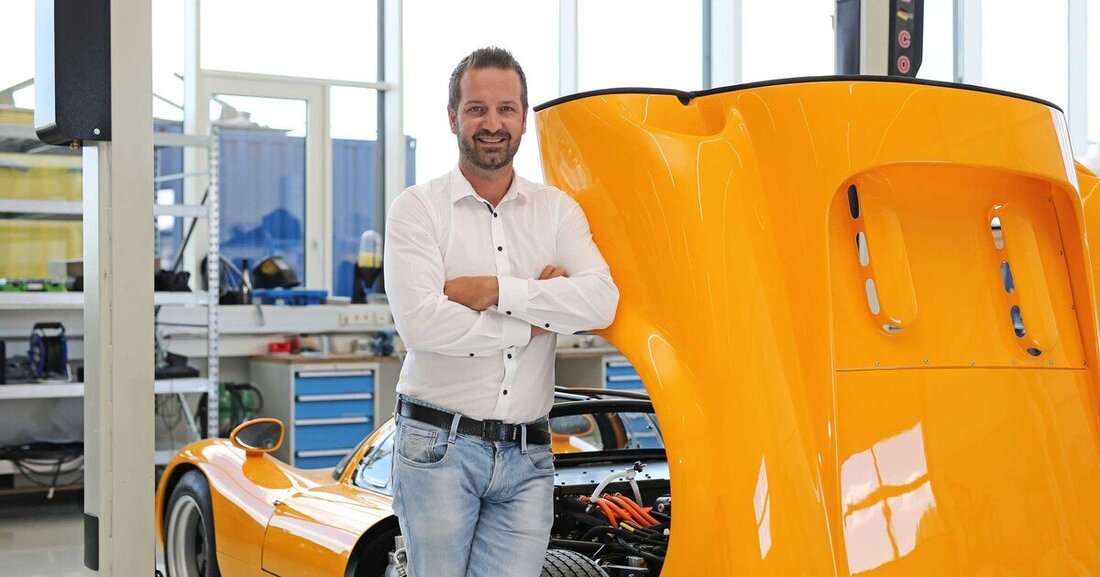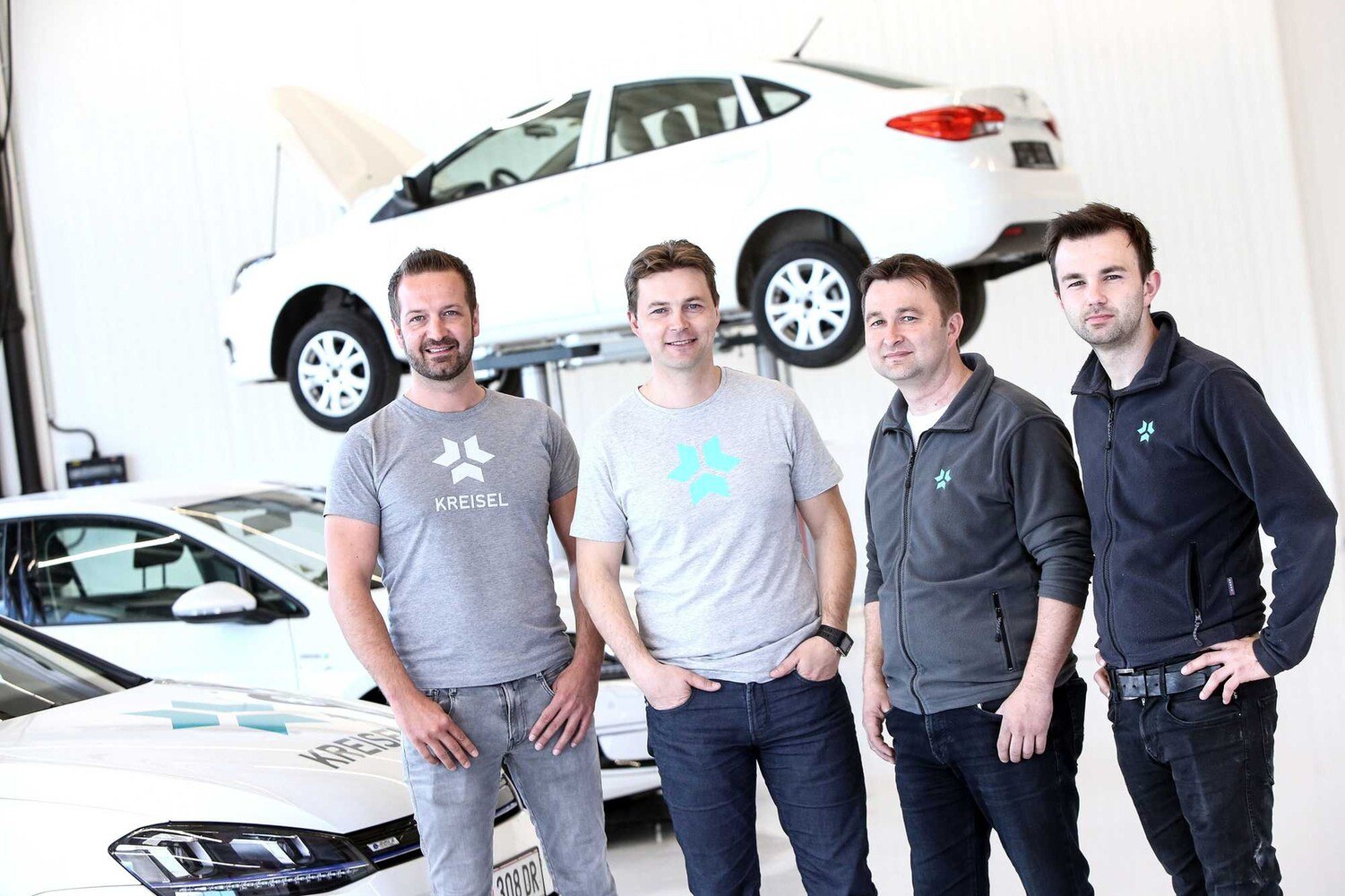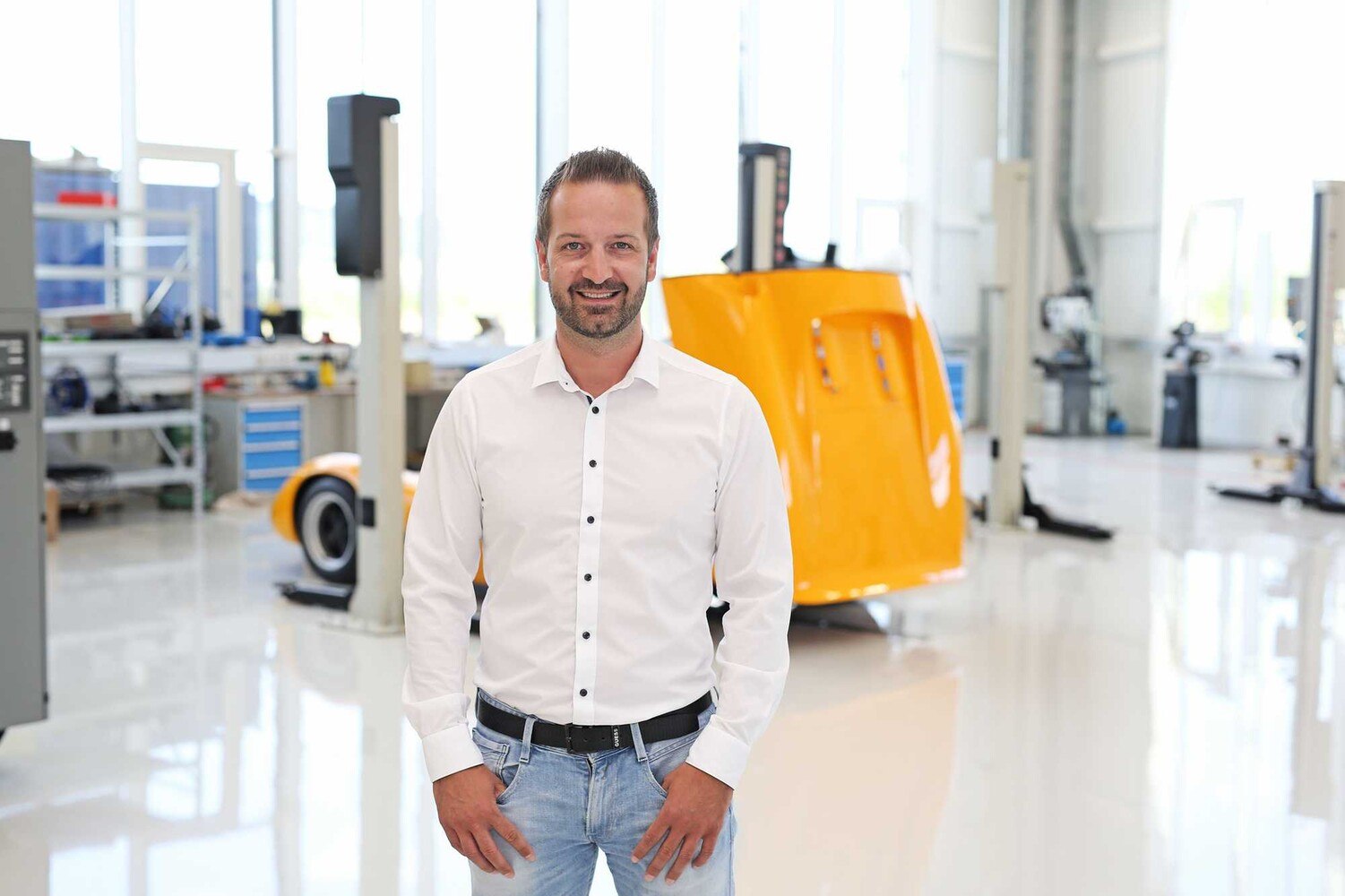Kreisel Electric takes off
In an interview with KFZ Wirtschaft, Christian Schlögl, Managing Director of KREISEL ELECTRIC, gives an outlook on the future market development of electromobility and reveals what role the Mühlviertel company will play in this.

Kreisel Electric takes off


Automotive economy: The forecasts for the breakthrough of electromobility range from a few years to several decades. What role does Kreisel play in this development?
Christian Schlögl:Kreisel Electric's philosophy is based on supporting and helping to shape this development. We are constantly developing mobile electricity storage efficiently. We can only influence the spread of e-mobility to a limited extent, as macro factors such as politics and social acceptance play an important role here.
When will electric cars catch up with combustion engines in terms of price and range?
According to current forecasts, around two thirds of all new registrations will be electric vehicles in ten years. Our technology makes it possible for electric vehicles to become suitable for everyday use and to have performance and range comparable to combustion engines. However, it will still be some time before this technology goes into series production. The automobile manufacturers have only now announced their major offensives from 2020. Overall, we assume that the prices of electric cars will be in the same price segment as cars with combustion engines in around five to ten years.
What technological advantage do Kreisel batteries have today, and how do you want to maintain or expand this?
Our batteries have better thermal management, and the connection technology of the individual cells also differs from those of most manufacturers. Kreisel batteries are therefore more compact and more powerful, have a longer range, a shorter charging time and a longer service life. Since we can design electric vehicle prototypes within weeks, the solutions are quickly available to our customers. We also have national and international patents that protect our technology. We are also always working on new ideas to improve and further advance our existing solutions. We are electric pioneers and want to stay that way.
Battery factories are currently being built in Germany, the USA and China. Is Kreisel’s know-how required?
There is global demand for our technology. We are conducting discussions and negotiations with representatives from the USA, China and other countries.
In which vehicles other than automobiles are Kreisel batteries used?
Kreisel Electric operates in all spheres of electric mobility. Our batteries are used in cars, in transport, in airplanes, in boats and in racing. There are currently around 30 prototypes in the automotive sector as well as various other individual projects for the electrification of all mobility solutions.
In which area do you see your greatest market opportunities?
Our focus in development was on the automotive industry, which is now even more interested in electrical power storage solutions due to the diesel affair. We see great potential here to become an integral part of automotive solutions worldwide as an “ingredient brand”. However, our stationary electricity storage area should not be underestimated. We already have over 3,000 pre-orders for our Mavero home storage and demand is increasing rapidly.
Kreisel produces charging stations and cooperates with Porsche Austria in this area. Are further collaborations planned with automobile importers, fleet operators or institutions?
Of course. An example: We are currently building a series of electric buses together with VDL. This series consists of around 100 pieces, which will be delivered towards the end of the year. We also cooperate with well-known automobile manufacturers and tier one suppliers in Europe. Unfortunately, for confidentiality reasons, we cannot talk about other series productions in which we will be involved. At the community level, we have developed mobility concepts that electrify entire communities.
Can the expansion of the charging infrastructure in Austria keep up with the demand for electric cars in the medium term?
We currently have almost 60 charging points at our location in Rainbach im Mühlkreis. Together with Porsche Austria, we will set up a further 100 charging stations in 2018. Further projects with other providers are already being planned. We hope for political support in expanding the charging infrastructure.
In your opinion, what know-how should Austria's workshops acquire in order to be able to maintain and repair electric vehicles?
The workshops should focus more on electrical engineering and mechanics. Battery technology is of course an important element. We recommend employing an experienced electrical engineer who has knowledge of high-voltage electrical systems.
How maintenance-intensive is a vehicle's power storage system?
Each of the approximately 8,000 cells in a typical car battery is constantly monitored using special software. The battery should be tested annually to ensure that the capacity is within the intended range. Our electricity storage systems are generally not very maintenance-intensive. The special thermal management enables a sustainable increase in the service life of the battery by permanently washing the individual battery cells. This liquid circulates in a closed circuit. The special connection of the individual battery cells using a special laser process also helps to increase the performance of the battery. Even if individual cells are defective, the battery continues to work.
“In ten years, around two thirds of all new registrations will be electric vehicles.”CHRISTIAN SCHLÖGL, CEO KREISEL ELECTRIC

 Suche
Suche
 Mein Konto
Mein Konto